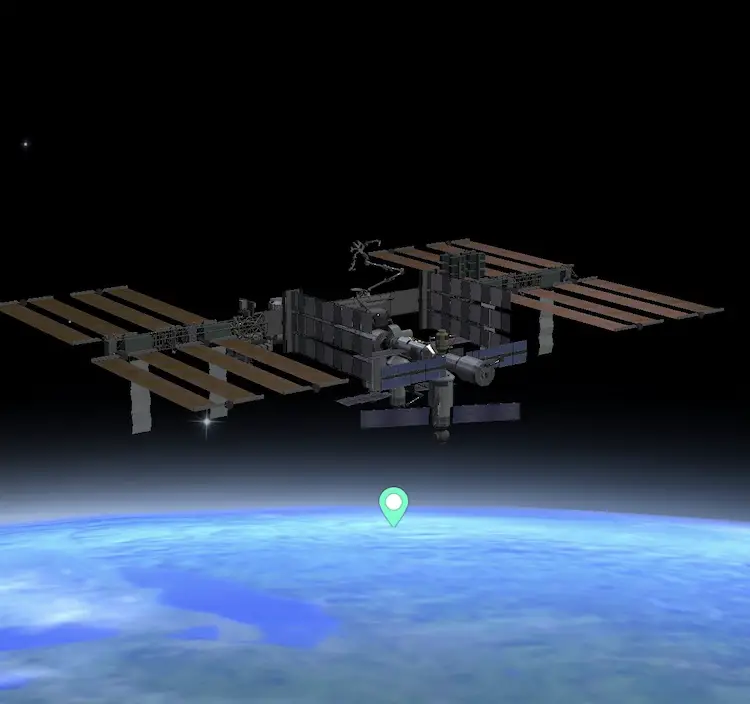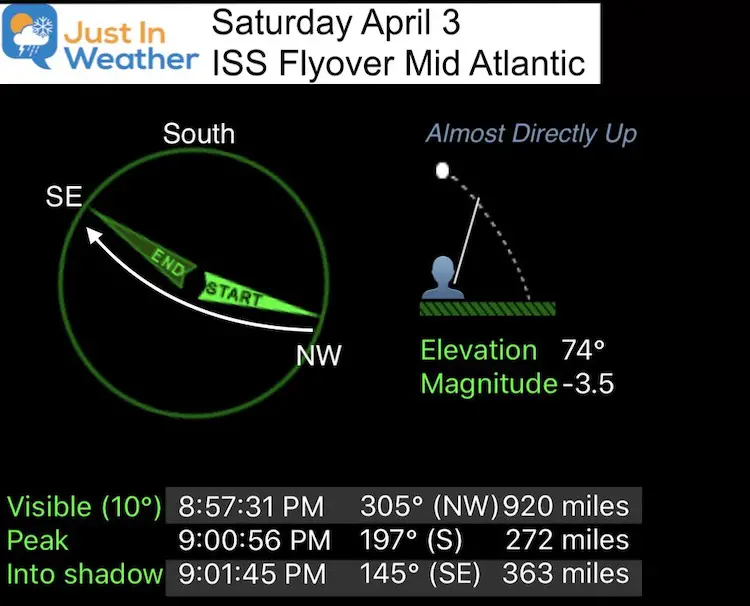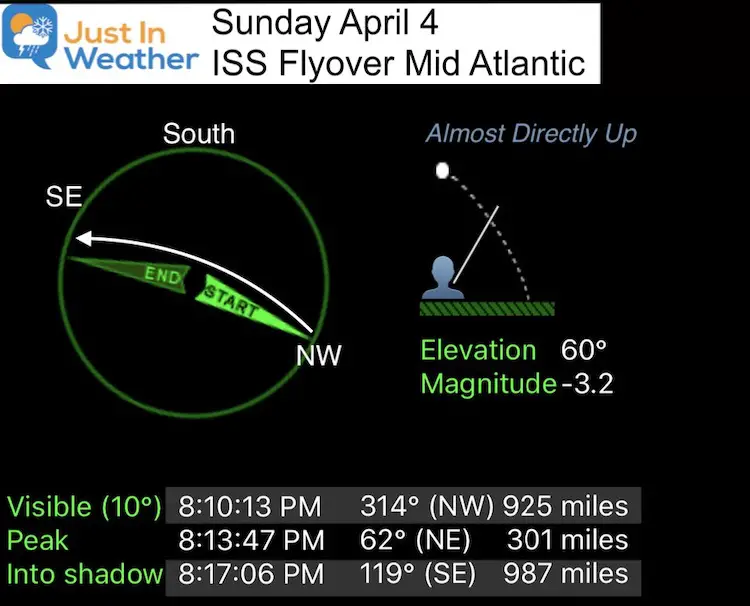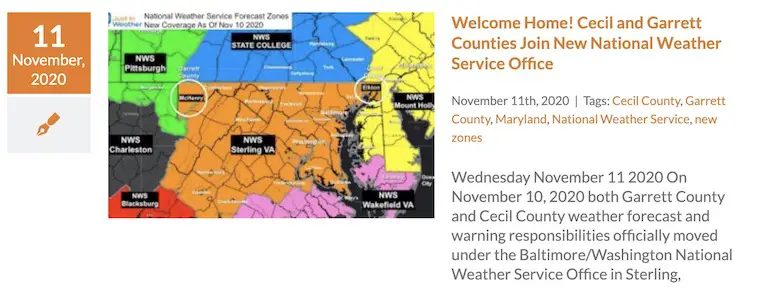April 3 2021
The month of April is starting to bring some of the benefits of spring conditions just in time for two sky shows. As temperatures warm closer to average, plus the longer daylight, evening gets pushed later with more comfort to be outside.
Two evenings in a row have aligned with nearly a direct flyover from the International Space Station (ISS). The second one may be considered an extra gift for many as it will be on Easter Sunday, with a longer window and a little earlier.
The benefit of a flyover just after sunset, is that the high altitude of ISS still captures the sunlight and reflects a bright orb as it passes overhead.
Viewing Tips and Live ISS Video are featured below.
ISS Flyover Simulation

Viewing Tips Saturday April 3 2021
This will be the higher but shorter flyover of the group! It will end up being a shorter window because it will enter Earth’s shadow, causing the light to appear to go out before ISS is actually out of sight.
Our view of the ISS flyover this will last 4 minutes and 14 seconds minutes and peak at 9:00 PM
The track will start from the northwest sky. Find where the sun set and look just a little to the right (north).
- 8:57:31 PM = First View
- Look in the region where the sun sets.
- 9:00:56 PM = Peak
- 9:01:45 PM = Last View
- ISS will pass nearly overhead. The computation is 74º, but you may need to lay down or lean against something while you swivel tracking it.
The International Space Station will appear like a fast moving plane with a very bright steady light, but no blinking lights.
Weather: There was a disturbance over the eastern Great Lakes that was sending high thin cirrus clouds our way this afternoon. This may be the only drawback for some areas.

Satellite Weather Widget
This should help track the cloud cover, but it may be possible to still see it through high cirrus clouds. Pinch the image to zoom in or pan the view.
LIVE NASA Video Stream
ISS Trivia
You will be able to see it with your own eyes, but binoculars may help you identify some of the solar panels and central structure. I don’t recommend a telescope since it will be moving pretty fast. Check out these stats:
- Orbital speed: 17,000 mph
- Complete Orbit = 92.65 minutes
- Orbits per day: 15.54
- Altitude: Ranges between 249 and 256 miles above the ground
- Origin: The first component was launched in 1998
- Days in orbit: 22 years, 4 months, and 14 days (April 3, 2021)
- Occupied since November 2, 2000.
Viewing Tips Easter Sunday Evening April 4
This will be lower but the longer flyover of the group!
Our view of the ISS flyover this will last 6 minutes and 53 seconds minutes and peak at 8:13:47 PM
The track will also start from the northwest sky. Find where the sun set and look just a little to the right (north).
- 8:10:13 PM = First View
- Look in the region where the sun sets.
- 8:13:47 PM = Peak
- 8:17:06 PM = Last View
- ISS will pass more than halfway above the horizon at 60º, but it may seem higher than that. This is optimal for viewing, and longer tracking.
The International Space Station will appear like a fast moving plane with a very bright steady light, but no blinking lights.
Weather: Partly cloudy but clearing over some areas.

Sunshine Sate Of Mind
I am done with the cold and snow (for the season). I am embracing my wife’s mantra of Sunshine State of Mind.
This was designed by Shannon Berk and we will be wearing it through spring and to the beach.
Double Benefit:
Proceeds will be split between our nonprofit Just In Power Kids and the development of my new weather website. That has been scheduled to be ready to launch in May.
Maryland Weather Page
I wanted to keep it simple. Just the basics for a quick view at any time.
14 Local Maryland Pages (and York PA)
We have made a page for Maryland Weather which gives you the current conditions for 14 present area locations. Many of these match up with the spots on our route. Please use this list below are reference. I will include them daily with my articles on the kids.
Please share your thoughts, best weather pics/video, or just keep in touch via social media



